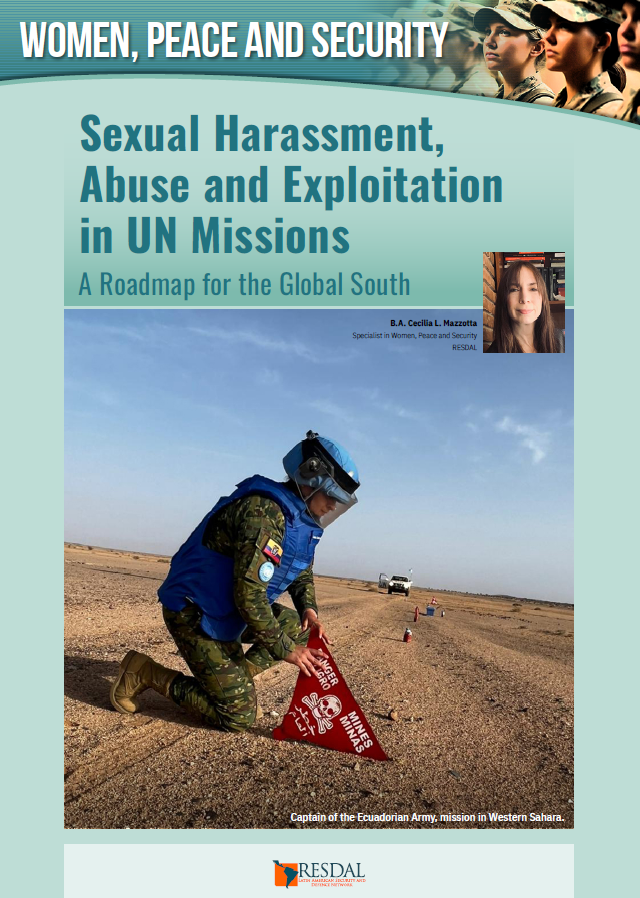A Roadmap from the Global South to Tackle Sexual Harassment, Abuse and Exploitation in UN Missions

RESDAL presents the new publication by Cecilia Mazzotta, “Sexual Harassment, Abuse and Exploitation in UN Missions. A Roadmap for the Global South”, developed within the framework of the project “Women in Peace Operations: Supporting Inclusive Environments through Interregional Collaboration and Engagement at the National Level”, supported by Global Affairs Canada under the umbrella of the Elsie Initiative .
This in-depth report offers a critical and constructive analysis of the institutional responses developed by the United Nations to prevent and address sexual harassment (SH) and sexual exploitation and abuse (SEA) in peacekeeping operations. Drawing from official documentation, field assessments, and policy evaluations, the publication explores key mechanisms such as the Special Coordinator Office, the Voluntary Compact, the zero-tolerance policy, the Elsie Initiative, and the SH Knowledge Hub.
Mazzotta highlights persistent gaps between the formal frameworks and their actual implementation on the ground, especially in missions involving uniformed personnel. The report also sheds light on the challenges faced by women deployed in hostile or hierarchical environments, and calls for more effective action to build trust, improve accountability, and ensure gender-sensitive workplaces across the peacekeeping system.
With a focus on the Global South, the roadmap outlines concrete recommendations for Member States and Troop- and Police-Contributing Countries (TPCCs), including stronger pre-deployment training, national strategies to prevent SH and SEA, gender-responsive reforms in security institutions, and active collaboration with civil society organizations.
About the author: Cecilia L. Mazzotta is a specialist in Women, Peace and Security. With extensive experience in the field, she has contributed to regional and international initiatives focused on the promotion of gender equality in peace operations and the inclusion of women in military and police institutions.
This publication is part of RESDAL’s commitment to fostering inclusive deployment environments and advancing the Women, Peace and Security agenda across Latin America and beyond.
Download the full report



